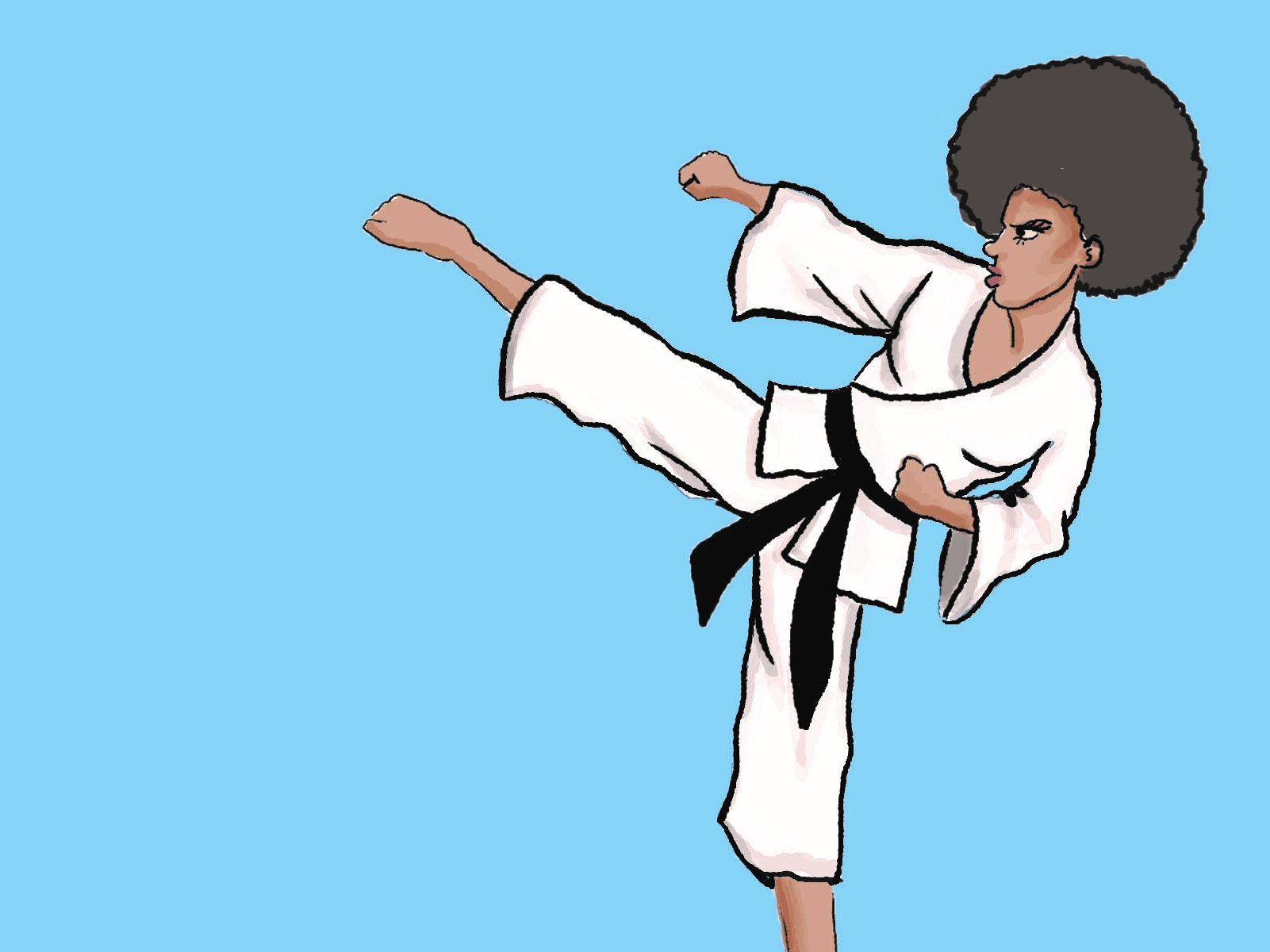Stunt work is, obviously, very risky, which means that anyone in the field spends much of their time training, not only physically, but emotionally. London-born Shaina West is no exception. However, after a motorcycle crash in 2015 that landed her in the hospital with severe injuries, she was almost unable to function, let alone continue the training necessary to stay at the top of her field.
On top of that, within a week her partner ended their relationship and she was fired from her job. Riddled with anxiety and depression, she found comfort in comic book characters, anime and eventually martial arts. What then sprouted was a deep appreciation for Japanese culture, and she has used that love as a scaffolding for how to live the rest of her life.
While she often trains with others, West is almost entirely self-taught in martial arts; she has a high proficiency in several martial-arts styles, namely Katate and Wushu, and with weapons such as the bo staff. In the spiritual vacuum that followed her accident, karate helped her find the discipline she needed to get her life back on track.
“All I had to do was begin,” West told Quirktastic. “Martial arts teaches you more than just how to fight. It teaches you patience, perseverance, practice, discipline, humility, spirituality; it builds character, and how to get better at learning things. Even more so when you have to teach yourself! I learned so much about myself through martial arts, and have created even more for myself with it. It is for my body as well as mind and soul.”
It was only a few years into training when West turned her new lifestyle into a career, but her entry into the world of stunt work was the beginning of a slow climb. She noticed early on that the field was predominantly male, with an organization that arranged for stuntmen to perform in place of both male and female actors. Also stuntwomen, especially those of color, make up only a small percentage of the British Stunt Register, with only two of the 397 total performers identifying as black women.
This racial and gender discrepancy stems from the training requirements of stunt actors. Because they need a rating in gymnastics, horse riding and driving, trampolining, diving and a martial art, the time and expense required for such a resume can be prohibitively expensive.
For women, things get even more difficult, as maternity pay is nonexistent. Stuntwoman Tina Maskall continued to work on the set of “Skyfall” six months into her own pregnancy, a move that highlighted the desperation that the already-hazardous stunt-work industry can drive. The practice of “wigging” — white stuntmen portraying female or minority actors — has, a result, taken ahold as an alternative to addressing these issues.
Nevertheless, West sought to make a name for herself in the field, despite her lack of insider knowledge or connections. Her work in film and television has yet to fully blossom, but she aspires to work in Marvel and DC productions so she can contribute everything she can to the characters that inspired her.
Still, West has had many opportunities in the past few years, including promotional work with brands such as Adidas and Disney, the latter of which she performed material for in “Star Wars: The Last Jedi” in 2017. Currently she is planning to work with a producer on a TV series.
Still, her career opportunities in the field of stunt work are still somewhat stunted by her gender and race, a large part of why she wants to take on independent ventures in the future. “I can create opportunities for myself and I am aiming to be both a stunt person and actor, rather than just a stunt double,” she told The Huffington Post.
“I will be playing my own characters as well as creating my own shows and choreographing my own fight/action sequences as opposed to relying on those to become available to myself. I get to become the representation that black people usually don’t get in this genre of action/fantasy — I value this very much.”
Through her work as a professional stuntwoman of color, West hopes to provide valuable diversity in a white-male-dominated industry, all while promoting her mental health by engaging in the practice she loves.
















